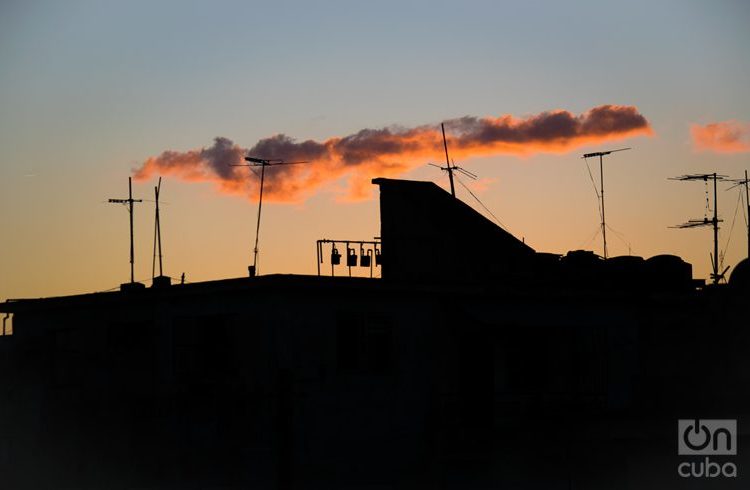The discussion most difficult to win is not the one in which one of the interlocutors has a colossal intelligence or speaks louder than the other. It is the one in which prejudices replace strong elements and reasoning. If arguing with an individual full of prejudices could seem an impossible mission, it is disastrous for the development of a country when those whims permeate society and become a system.
In the discussions about the non-state sector in Cuba I have seen how the critical or differing focuses about it are based on bad examples (always anonymous) or using condemnatory phrases that tend to put the bad and the good in the same bag. After seven years of implementing the Guidelines, many prejudices against the private sector still exist in Cuban society.
These have been several years of a different vision of the economy. It is also understandable that many look down on us when they go to the shop selling in hard currency that’s on the corner and don’t find what they were looking for because the neighborhood’s paladar polished off everything; or when the driver of the almendrón, without blinking, charges you 20 pesos. But it is necessary to look beyond.
Each time we are criticized a group of prejudices are repeated, which, in my opinion, lack a real foundation. I have counted them; they are seven, like the deadly sins. Here I mention and question them with a handful of ideas to continue thinking (since I could be wrong):
1. The private sector is the reason for the increase of inequality among Cubans. Was the Revolution able to completely eliminate the inequalities that existed in Cuba in 1959? Didn’t it generate new inequalities after doing away with the old ones? Are not the remittances or that a relative works in a foreign firm a source of inequality with respect to a worker from the budgeted sector? Are the differences between the director of a state-run enterprise with car-cell phone-trips and the public street cleaning worker more tolerable? Will we make the citizens who have been left behind make progress by boxing in the individuals who with a private business improve their standard of living?
2. Giving more facilities to the private sector is returning to capitalism. Socialism continues not being questioned after the USSR disappeared almost 30 years ago. However, let’s look in the mirror of the most successful countries that still hold this standard up. The role of the private small and medium enterprise was not denied in China or Vietnam and it has played an important role in the economic advances of both nations. The big transnational monopolies that stand as global powers and the SMEs are two very different things. In the national debate, when we are criticized, at times it seems we are the same thing. Is Cuba more socialist because it keeps the private sector confined to low value-added services?
3. The private workers’ greed is the cause of the black market and tax evasion? The black market in Cuba is as black as the “Espejo de Paciencia.” It did not emerge with the issuing of self-employment permits, therefore blaming the private workers for its existence has no foundation. If they want to get rid of it, the causes that generate it have to be attacked. Any other thing is beating around the bush. The fiscal indiscipline, although it is unjustifiable, does have several explanations. A good conversation with several private works, having a pen and paper at hand, would be sufficient to know about the dissatisfactions related to this that exist in this group.
4. The private sector generates corruption, money laundering, prostitution and other evils. It is probable that the official figures show that these crimes have increased in recent years. But there is no doubt that the causes don’t only boil down to the existence of the non-state sector. And much less can this argument be used to restrict its participation in the national economy. With that same absurd logic, in the 1990s the country would have had to deny itself the development of the nascent tourist industry faced by the proliferation of “jineterismo” (prostitution), the migration of professionals to the doors of the hotels and the increase in the entrance of drugs. Why wasn’t it done? The answer is obvious and the result more so: today tourism is one of the economy’s principal driving forces. Why apply that perverse “logic” to the private sector?
5. The private sector has led to the concentration of wealth and property in the hands of a few. Where are the data that sustain that affirmation? Why aren’t they made public, if they exist? Are we saying that in Cuba there is a Carlos Slim or another multimillionaire who has in his hands the country’s strategic industries? What is the wealth limits allowed in Cuba? How can this prejudice be understood when we already have millionaire baseball players, singers and painters? How is it explained, if we know that a few officials who have gotten their hands dirty have also accumulated riches? Aren’t these also “nouveau riches”?
6. The private workers don’t care about the community or the neighbors. There are more than enough examples of people who contribute money to the neighborhood, who collaborate with their community, who are aware of their closest environment. There are also a great many businesses where the sense of belonging of their workers and owners is very high. Why isn’t that side of the phenomenon also shown in the media?
7. The private worker wants to return to capitalism. Those of us who today are self-employed, at least those I know of, want to be prosperous in our country and not in another. We also want to be part of the difficult struggle that can’t be put off of making the country advance.
Government, state-run enterprises, private workers and each one of us Cubans have the obligation to build a future of prosperity and development for Cuba. But a country where the prejudices become a legal source doesn’t get anywhere. Conciliating the generation of wealth with social justice is the challenge. It is a road in which, as Deng Xiaoping said, we cannot stop eating for fear of choking.











